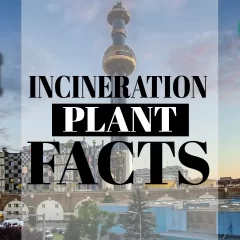May 2019
Incineration Plant Facts
A first of our waste incineration plant facts is that a “burner” (this being the derogatory term of the anti-incinerator capaigners) is an important facility for the preservation of public health as it involves protecting the environment in a number of ways. Unless the waste materials are properly disposed of by the waste incinerator plant, […]
What is Commercial Composting?
We were recently asked; “What is Commercial Composting” and since one person asked we wrote a definition, as follows below: Commercial composting is the composting carried out principally as a method of waste disposal that diverts this organic waste away from landfills. If the feedstock is green waste or another “MSW residual waste” organic material […]
Windrow Composting
Windrow composting is a way of generating compost by piling organic matter into extended rows or arc-like piles. The piles are turned over by large machinery to preserve even levels of heat, humidity, and oxygen content. Piles will usually range from four to eight feet tall and 14-16 feet in length. Windrow composting is a […]
Energy From Waste by Incineration: Why a Modern Incinerator is Not a Health Risk
Making Energy from Waste by incineration should not still be accused of being a significant threat to the health of nearby residents. We wish to explain why a modern incinerator is not a health risk. Concerns about pollution and particularly the discharge of trace amounts of dangerous substances into the area around an incinerator are […]
Large In-vessel Composting Systems: What are They and How Do They Work?
Progressive cities and many urban centers around the world are now installing large-scale in-vessel composting systems as part of their total MSW management. Large scale in-vessel composting, which makes high quality compost through the use of enclosed “reactors” that closely monitor temperature and oxygen levels throughout the biodegradation of organic materials, is popular. In-vessel composting […]
Autoclave Technology for Municipal Solid Waste Management
Autoclaving is defined as a form of Mechanical Heat Treatment (MHT) which takes place as a batch process and comprises steam processing of residual MSW, in a vessel under the action of pressure. This is contrasted with other MHT waste treatment technologies which are continuous and don’t involve pressurization. Autoclaves have for long been used […]
Advantages and Disadvantages of In-vessel Composting Food Waste
The in-vessel composting of food waste is being carried out increasingly, particularly in the United Kingdom, with the prime purpose being to divert this waste from landfill. The purpose of diversion in order to comply with the EU requirements for the reduction of organic materials being placed in landfills. In this discussion, the advantages of […]
The Dano Drum
“The Dano Drum provides waste volume reduction and segregation in one simple rotating drum system.” The Keppel Seghers DANO® DRUM has been around for more than 20 years. There are many examples, and it is a technology for which there is good performance data. The main component is a large slightly sloping, horizontally mounted, rotating […]
Recycling Facts: The BIG List!
Waste Incineration Plants (also known as WtE facilities) should not be installed as a replacement for material recycling. WtE is designed to complement recycling programs because not all waste is feasible to recycle. Incineration is an engineering process that uses thermal decomposition in a highly oxidative environment to decompose organic molecules into simple compounds, predominantly […]
Waste Incineration Plants: Background to Their Use
Waste Incineration Plants (also known as WtE facilities) should not be seen as a replacement for material recycling. WtE is designed to complement recycling programs because not all waste is feasible to recycle. Incineration is an engineering process that uses thermal decomposition in a highly oxidative environment to decompose organic molecules into simple compounds, predominantly […]









